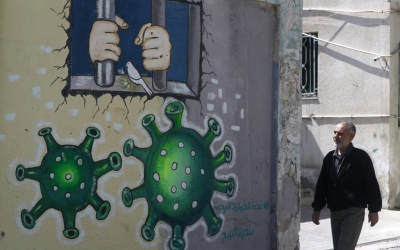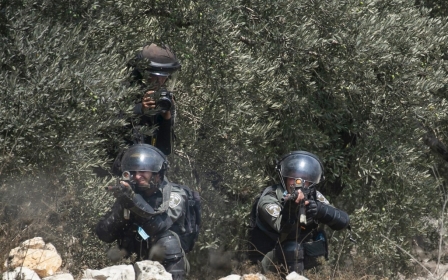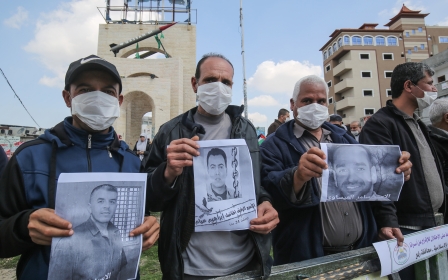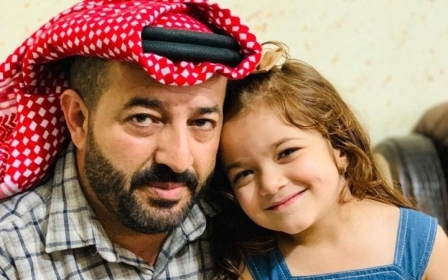Palestinian leaders call for Israel to release prisoner on 80th day of hunger strike
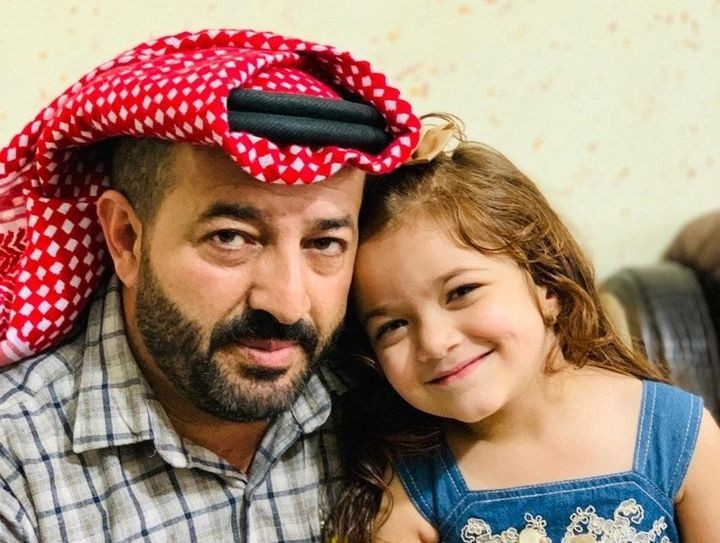
Several Palestinian political figures have raised the alarm over the deteriorating health of Maher al-Akhras, who entered the 80th day of his hunger strike on Tuesday in protest against his administrative detention - imprisonment without charges or trial - by Israel.
On Tuesday, Israel's Supreme Court rejected Akhras's legal petition for release.
'We are extremely worried about the dangerous deterioration of Akhras’ condition and demand freedom for him'
- Yousef Jabareen, member of the Joint List
Knesset member Yousef Jabareen, a member of the Joint List representing Palestinian citizens of Israel in Israel's parliament, said that the Supreme Court "has given, again, judicial legitimisation to the occupation and violation of Palestinians’ rights".
"We are extremely worried about the dangerous deterioration of Akhras’ condition and we demand freedom for him and for all political prisoners," Jabareen added in a statement.
Palestinian Authority Prime Minister Mohammad Shtayyeh also called for Akhras's "immediate release".
New MEE newsletter: Jerusalem Dispatch
Sign up to get the latest insights and analysis on Israel-Palestine, alongside Turkey Unpacked and other MEE newsletters
Hamas spokesperson Fawzi Barhoum confirmed in a statement on Monday that the movement had sent "a strong message" to Israel to release Akhras from prison.
"We are ready for any scenario … we want the freedom and safety of the prisoner al-Akhras," Barhoum said. "Hamas has a strong presence in the field and it will participate in any resistance act on the ground so Maher enjoys freedom."
Israeli rights group B'Tselem described Akhras' health on Tuesday as "on the verge of death".
Akhras, 49, said last week that he remained determined to pursue his hunger strike.
In a video message from his hospital bed in Kaplan Medical Centre in Rehovot, Israel, Akhras said the aim of his hunger strike was “either freedom for my family and my children or my killing in the name of their false justice”.
Highly controversial policy
Administrative detention was first implemented in Palestine under the British Mandate and has since been adopted by Israel.
The highly controversial policy, used almost exclusively against Palestinians, allows for detention without charge or trial for renewable periods of three to six months, without the possibility of appeal or knowing what accusations are being levelled against the detained.
Many Palestinian prisoners have resorted to going on hunger strike to protest against being sentenced to administrative detention.
According to Palestinian prisoners' rights group Addameer, 4,400 Palestinians were detained by Israel as of September, with 350 of them under administrative detention.
Akhras was arrested in July and was hospitalised in Kaplan Medical Centre in September.
His health was reportedly deteriorating and could lead to “damage” to the heart, eyes and ears, especially after he refused to take supplements offered by Israeli doctors, Qadri Abu Bakr, the head of the Palestine Liberation Organisation’s (PLO) Committee of Prisoners' and Former Prisoners' Affairs, said last week.
Born in 1971 in the village of Salileh in the northern occupied West Bank, Akhras, a father of six, has been imprisoned by Israeli authorities at least five times since he was 18 for at least five years in total.
He was detained for seven months in 1989, for two years starting in 2004, 16 months starting in 2009, 11 months in 2018 and most recently in July.
Middle East Eye delivers independent and unrivalled coverage and analysis of the Middle East, North Africa and beyond. To learn more about republishing this content and the associated fees, please fill out this form. More about MEE can be found here.


